Winter Preparedness for Rural Homes
How to prep your home, car – and psyche – for winter storm season and its inevitable hydro outages.
As rural residents know, winter can hit us harder than it does urban dwellers. We’re more isolated; we can’t easily decamp to warm, communal spaces. Assembling an emergency kit and prepping ahead can mean less scrambling for a fix when Mother Nature does her worst.
Emergency kits are essential
You’re going to need two of these: one for your home, and one for your car in the event you are stranded in a storm or need to head out into one.
For home, Tiziana Baccega Rosa, a spokesperson for Hydro One, recommends your kit contain the following: water and non-perishable food items for all family members, including pets; a manual can opener; a windup or battery-powered flashlight and radio; extra batteries; cash; a fully stocked first aid kit; blankets; a fully charged cell phone (a backup battery is smart too) or at least one corded phone at home; and a full list of essential contact numbers, including that of your local hydro provider. We’d add candles and matches, stored in an easy-to-reach spot, to the list – and if a storm’s coming be sure you have easily accessible firewood if you use it.
For your vehicle, snow tires are a must (they should go on when the daily average temperature drops below 7 C). CAA recommends you have the following items assembled and stored safely in an easy-access carryall in the cargo area in case of a breakdown: a windup flashlight, reflective safety triangles or flares, a small first aid kit, a snow brush and scraper, tire traction aids, a small shovel, windshield washer fluid, booster cables, gas-line antifreeze, lock de-icer, paper towels, a small tool kit, extra fuses, socks, boots, gloves, and hand and foot warmers, as well as water and non-perishable food items, such as granola bars.
Consider a generator
A generator is one of the savviest investments you can make in your home for the winter months. Derek Gallant of the Amaranth-based Tanco Group explains there are two main types of generators to choose from: a standby unit and a portable model. A standby generator acts as a backup electrical system, which is professionally installed and kicks in automatically, Gallant says.
“Within seconds of a utility outage, an automatic transfer switch senses power loss, commands the generator to start, and transfers the electrical load to the unit. After normal utility power returns, the auto switch transfers the electrical load back to the utility and signals the standby generator to shut down and return to standby mode ready for the next outage.”
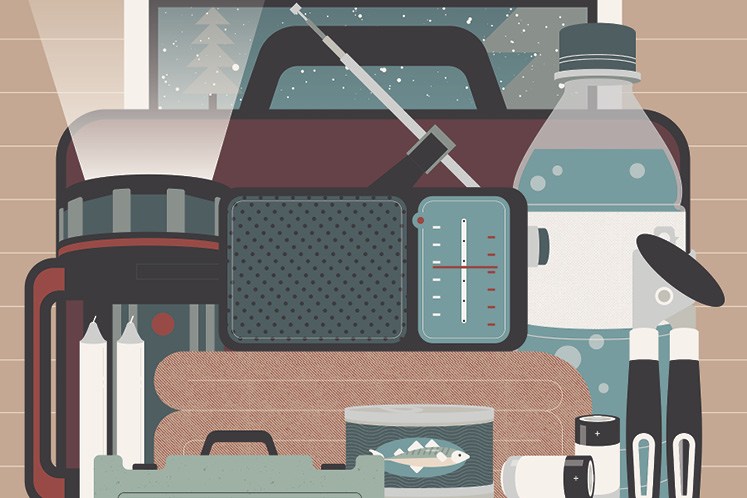
Illustration by Ruth Ann Pearce
Most power generators run on gasoline, but there are models that run on diesel, natural gas, or propane. Gallant says that if you are considering a generator, the one you buy should be based on your budget, and what you consider crucial to keep functioning during an emergency – such as your fridge and stove, hot water tank, furnace or lighting.
Power outage planning
When the lights go out, it’s natural to panic, but this can sometimes lead to some not-so-bright thinking, like moving downed tree branches from powerlines on the road or on your property. Don’t do it. Remain calm, stay inside, and leave these jobs to the professionals – your safety is the top priority. Stay far away from fallen power lines, a least 10 metres back, and report them to 911 and to Hydro One or your local utility, says Baccega Rosa.
If you’re using a portable generator, it’s critical for the generator to be outside and well away from open windows – to prevent fumes from entering your house. And a gentle reminder: resist the urge to bring a camp stove or barbecue inside, because of the risk of gas inhalation or fire. In some cases, leaving your home soon after a storm is the best idea.
“During an outage it’s important to stay safe by making decisions based on your needs,” says Baccega Rosa. “You may need to stay with friends or family during an extended outage.”
She adds that when a winter system starts appearing on the radar, hydro teams use an outage prediction tool to move crews and equipment into position in advance, allowing them to get to work on restoring power as soon as it’s safe.
The best way to report power outages? By texting Hydro One at 92887 (WATTS). You can also stay up to date by signing up for Hydro One’s outage text alerts and app. Do it now, before the lights go out.
Related Stories
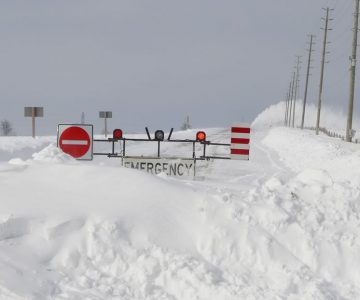
Ready or Not, Winter Storms Are on the Way
Nov 22, 2019 | | EnvironmentHowling blizzards, ice storms, power outages. Emergency services are on high alert, but when disaster strikes, the first line of defence is you.
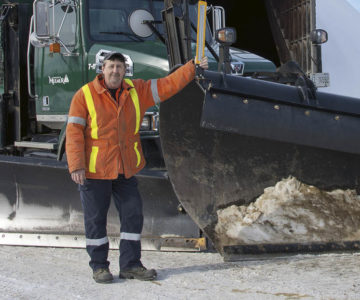
Bring It On!
Nov 20, 2022 | | A Day in the LifeWhen the winter wind blows and the flakes fly, snowplow operator Bruce Crawford is ready to go to work.
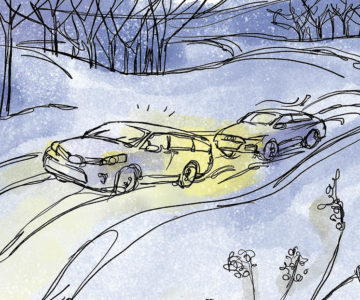
Taking the Learning Curve Too Fast
Nov 20, 2022 | | Fence PostsSafely navigating the narrow, snow covered hills of Headwaters is no walk in the park, as many long-time residents attest and new arrivals quickly learn.
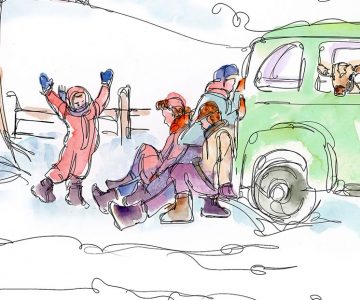
Finding Traction on the Backroads
Nov 20, 2018 | | Fence PostsYou made up your mind between one or the other when you turned 16 and you drove that make for the rest of your life. If you drove a Toyota into town, as I did, you would be watched …









When preparing your home for power outages, don’t forget to take care of your pipes. It’s a step that can save you from costly damage and inconvenience. Frozen pipes can burst, causing water damage and structural issues. To prevent this, insulate your pipes and allow faucets to drip slightly. If you have a backup power source, use space heaters to keep the temperature up.
Polestar from Kansas City on Dec 4, 2023 at 2:38 am |